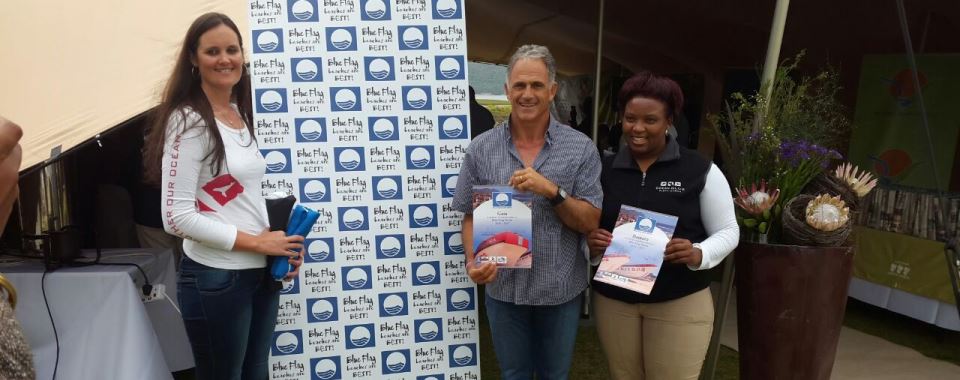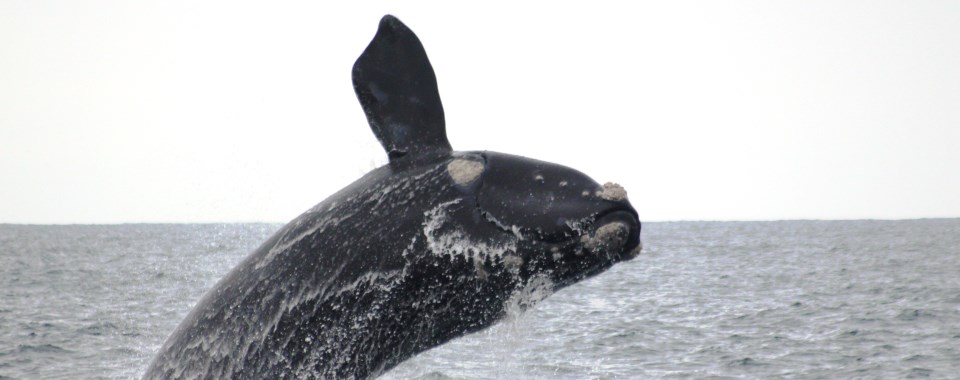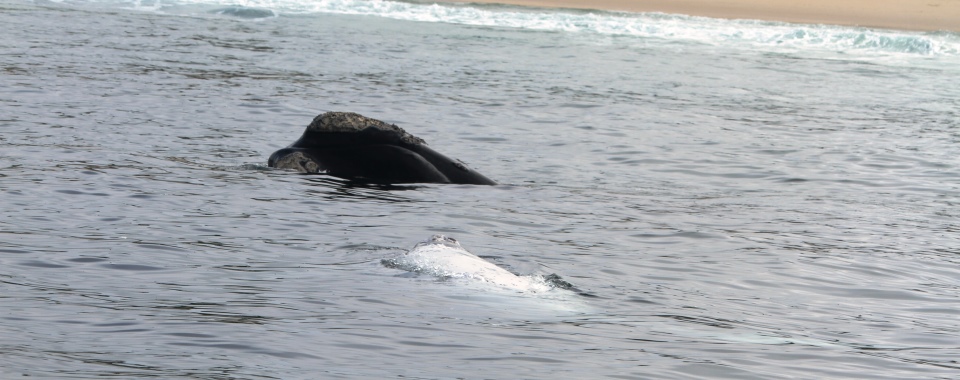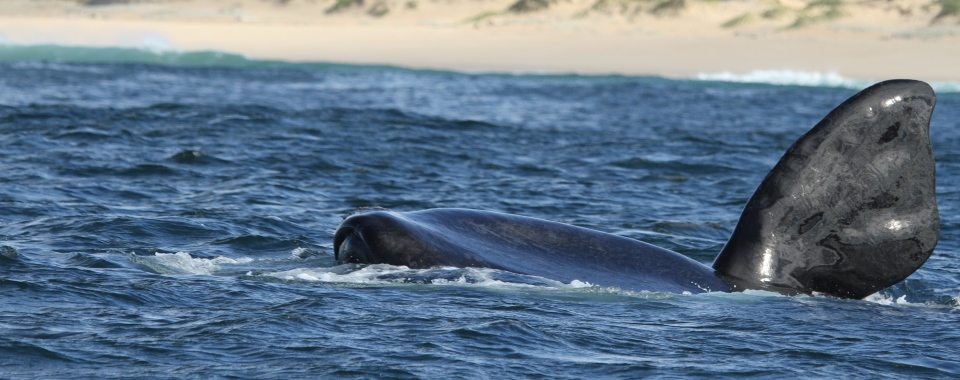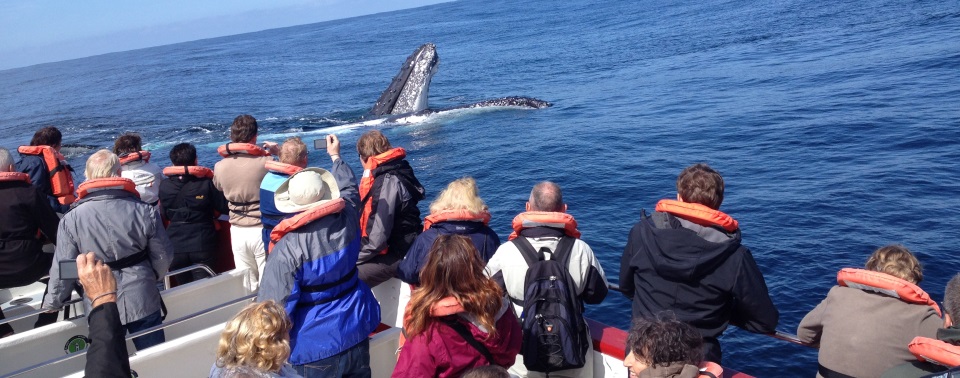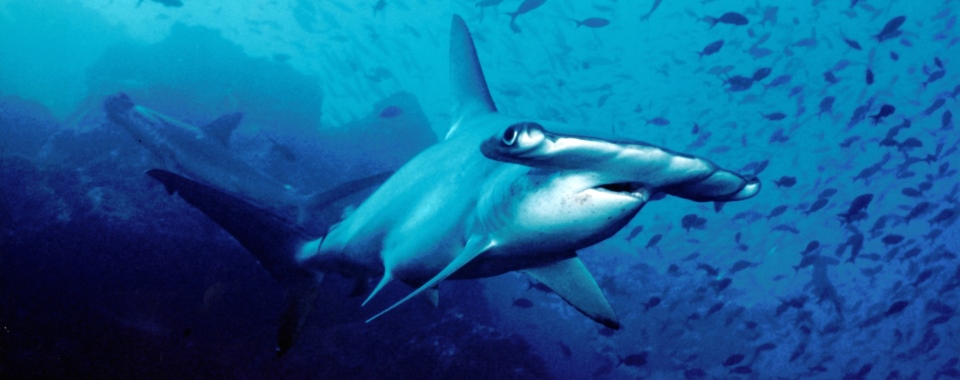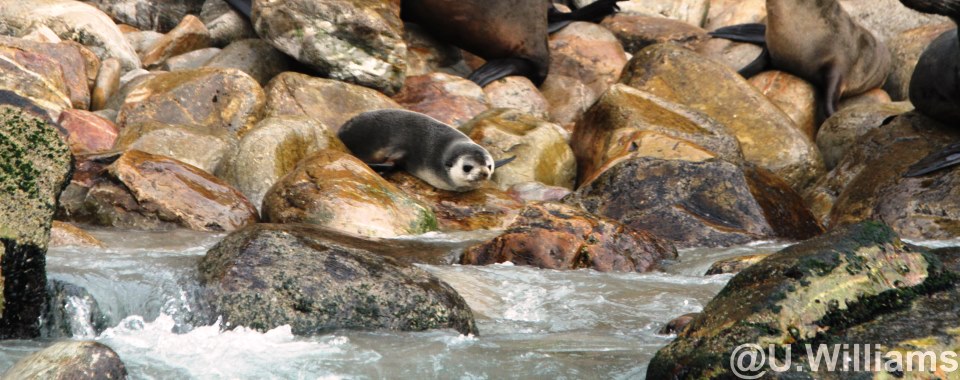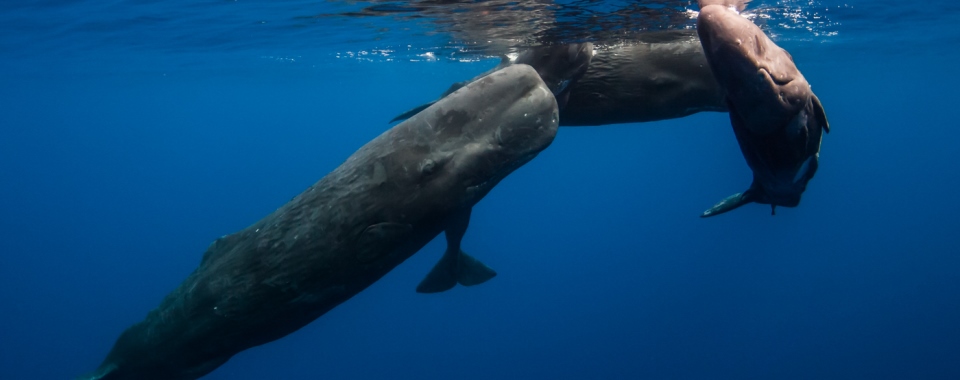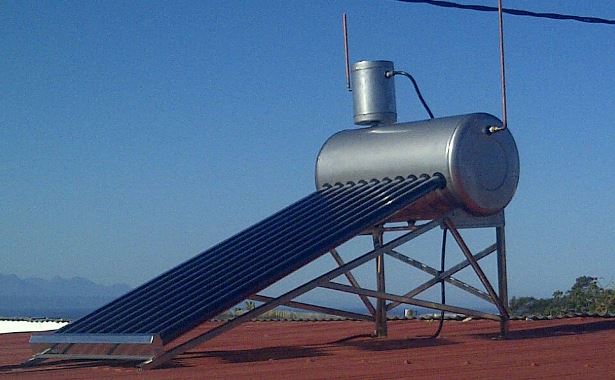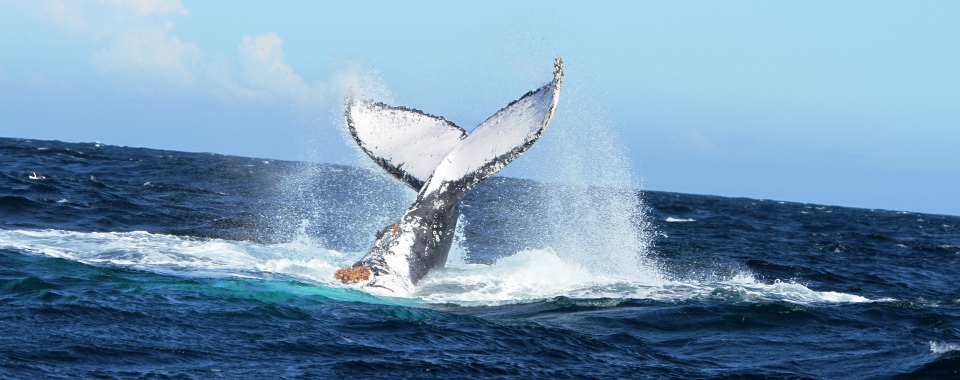We at Ocean Blue Adventures are proud to announce that for the third year in a row we received the Blue Flag Award. Ocean Blue was the second whale watching operator worldwide to receive this award in 2011.
During the South African winter, Southern Right whales (Eubalaena australis) arrives from the Antarctic to breed and give birth. They normally arrive in Plettenberg Bay in mid-July and stay until mid-September. They were given the name “right” whale, because during the whaling (the massive hunt of whales) they were the right whales to hunt. They READ MORE
A few weeks ago we had a white Southern Right Whale calf passing through our bay with its mother. What does it mean to be a “white” whale? “Is this a problem for the calf?” Being white or an albino (latin word albus meaning white) happens when the skin is lacking pigment due to absence READ MORE
We have seen some Southern Right Whales in Plettenberg Bay the last few days. The males have been seen courting the females for a last chance of mating before moving down to the Antarctic to feed. When the males court the females they pet them with their pectoral fins which is easily seen from a READ MORE
We had an amazing trips with with 3 humpback whales playing around the boat this weekend.
Parthenogenesis comes from two Greek words Parthenos meaning “virgin” and Genesis meaning “birth”. Parthenogenesis species are often mistaken for hermaphroditic (species that can reproduce by themselves) species, the difference is that hermaphrodites have reproductive organs from both sexes while the parthenogenesis only has the female reproductive organs. Parthenogenesis is a form of asexual reproduction where READ MORE
Around the world there are 33 different species of seals (Pinnipeds). In South African waters there are 7 different seal species found. The Plettenberg Bay resident specie is the Cape Fur Seal (Arctocephalus pusillus) with visiting Elephant Seals (Mirounga leonina) and Sub-antarctic Fur Seals (Arctocephalus tropicalis). The Subantartic Fur seal is mainly found in the READ MORE
When we (humans) go diving we need to take a tank of oxygen with us to stay underwater for a longer period of time. It’s not only the lack of oxygen that makes it hard to dive, it´s also the pressure that the water put on the body. For every 10 meters of water we READ MORE
Thanks to a generous donation we were able to get a solar heater for water at the Siyakula pre-school. They now have hot water in the kitchen for washing dishes etc. This is a great project that helps both the environment and the school as we now cut down on the electricity usage.
A parasite is an organism that benefits at the expense of another organism. Most parasites are small and cannot be seen, while others are bigger and will be seen as soon as they attach. “How come parasites are not considered predators?” It’s because parasites do not kill their host for an extended period of time READ MORE


